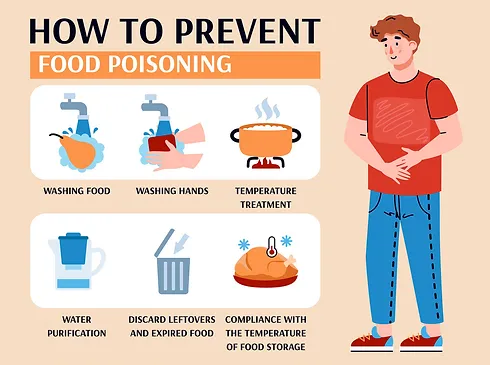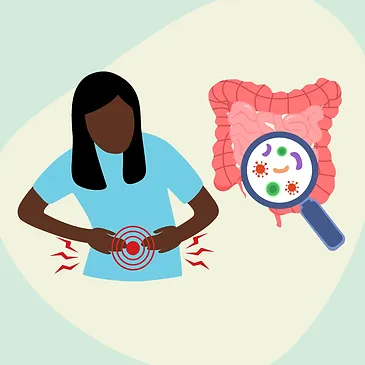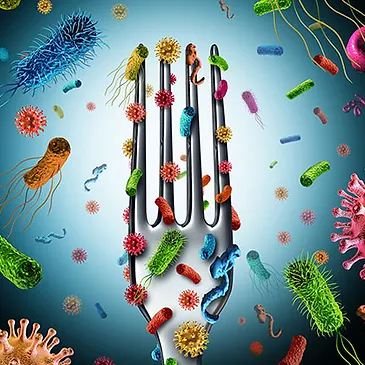Food Safety
What is Food Poisoning?Foodborne illness (sometimes called food poisoning, food-borne disease, or food-borne infection) is common, costly -- and preventable. You can get food poisoning after swallowing food that has been contaminated with a variety of germs or toxic substances |
 |
|
Symptoms include Upset Stomach, Stomach Cramps, |
Food Safety CLEAN-Wash your hands and surfaces often. SEPARATE- Don't cross-contaminate COOK- To the right temperature CHILL- Refrigerate promptly |
Click Image to report food borne illness |
Foods that cause food poisoning: Some foods are more associated with food borne illnesses and food poisoning than others. They can carry harmful germs that can make you very sick if the food is contaminated.
Other sources of food poisoning:
|





